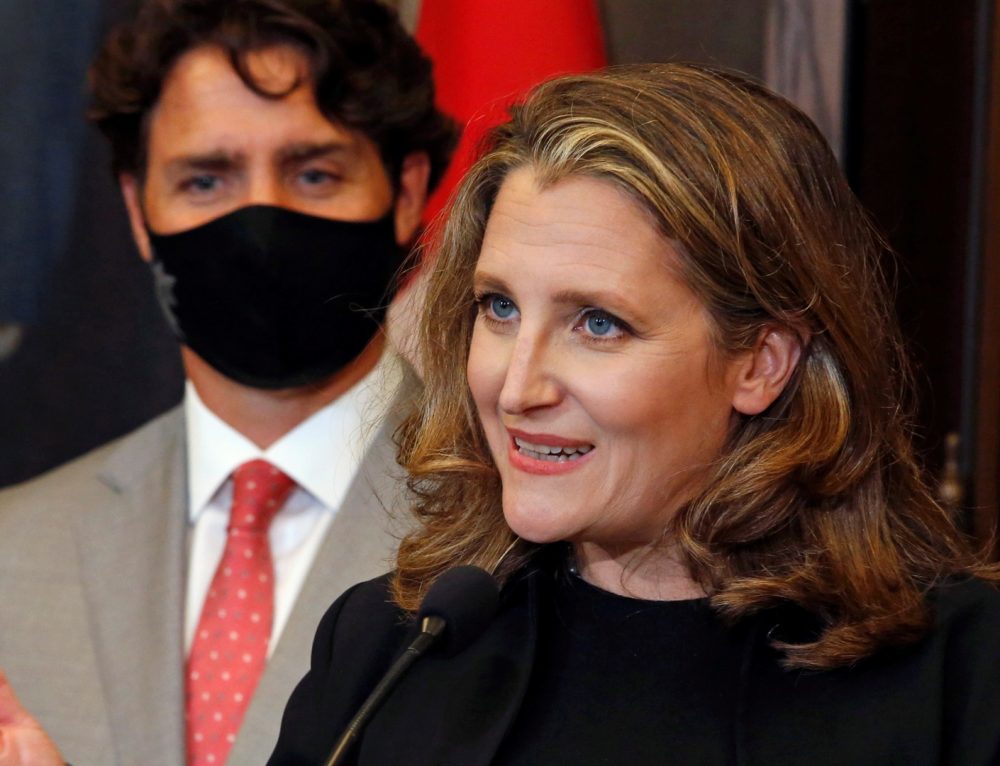Canada’s Finance Minister Chrystia Freeland has unveiled an ambitious $100bn economic recovery plan, but both positive signs and pitfalls lie ahead.
Finance Minister Chrystia Freeland’s economic recovery plan announced Monday will not please everyone even as Prime Minister Justin Trudeau’s minority government is working hard to satisfy the majority.
Some sectors of the economy, notably the badly hit airline industry, have said that the plan does not help them enough. Fiscal conservatives have criticized the sheer size of the package. Others claim the plan does not address the various long-term uncertainties created by the COVID-19 pandemic.
The list of potential pitfalls is long not least because the current recession is so different from the economic crises of the past. No one—not even the experts—know how things will turn out.
Despite a projected deficit of more than $380 billion and a debt expected to soar past $1 trillion, Freeland has reassured Canadians that payments on that debt remain affordable. But just as in your average household, debt is notoriously easy to run up and difficult to bring back down.
While interest rates are low for the time being and the U.S. Federal Reserve—which strongly influences rates north of the border—has promised to keep them low until the economy bounces back, market forces indicate that long-term commercial interest rates are on the rise.
Furthermore, low interest rates have led to extraordinary levels of borrowing by governments, businesses, and ordinary people.
Some experts warn that the world may be on the brink of a sudden shift to rising inflation. If so, governments and their central bankers will have to decide whether to combat the issue with higher interest rates in spite of the effect that might have on their own borrowing costs.
So long as interest rates remain low and the economy continues to grow, Canadian personal borrowing—currently at a staggering $2 trillion—is nothing to be concerned about. A lot of that debt is backed by high house prices. But rising rates and falling house prices, or a continuing recession that leads to job losses, could turn that debt into an increasingly crippling burden.
Even if the domestic economy continues to rebound, it will be hard for Canada to prosper if its trading partners weaken. Last week the United Kingdom, with whom Canada is currently negotiating a trade deal, plunged into its deepest recession in 300 years. Trade protectionism will be a temptation in many of these cases.
Rising stock prices have provided a boost for those with cash invested, but there are growing fears that market darlings such as Tesla, up 600 per cent this year, may have become detached from the real economy. With interest rates at an all-time low and borrowing so high, preventing damage to the financial markets from a potential panic will be harder than during previous bailouts.
In the wake of a major recession of the kind the world is currently facing, there is no way that Chrystia Freeland or anyone else can tell us with any certainty how the economy will unfold over the next few years.
All that Canada can ask for right now is a capable person in charge to help us make the best of that unknown future. And there is no reason to believe that future could not also include a strong recovery as new businesses take advantage of plentiful labour, less expensive office and retail space, and a flood of pent-up demand.












